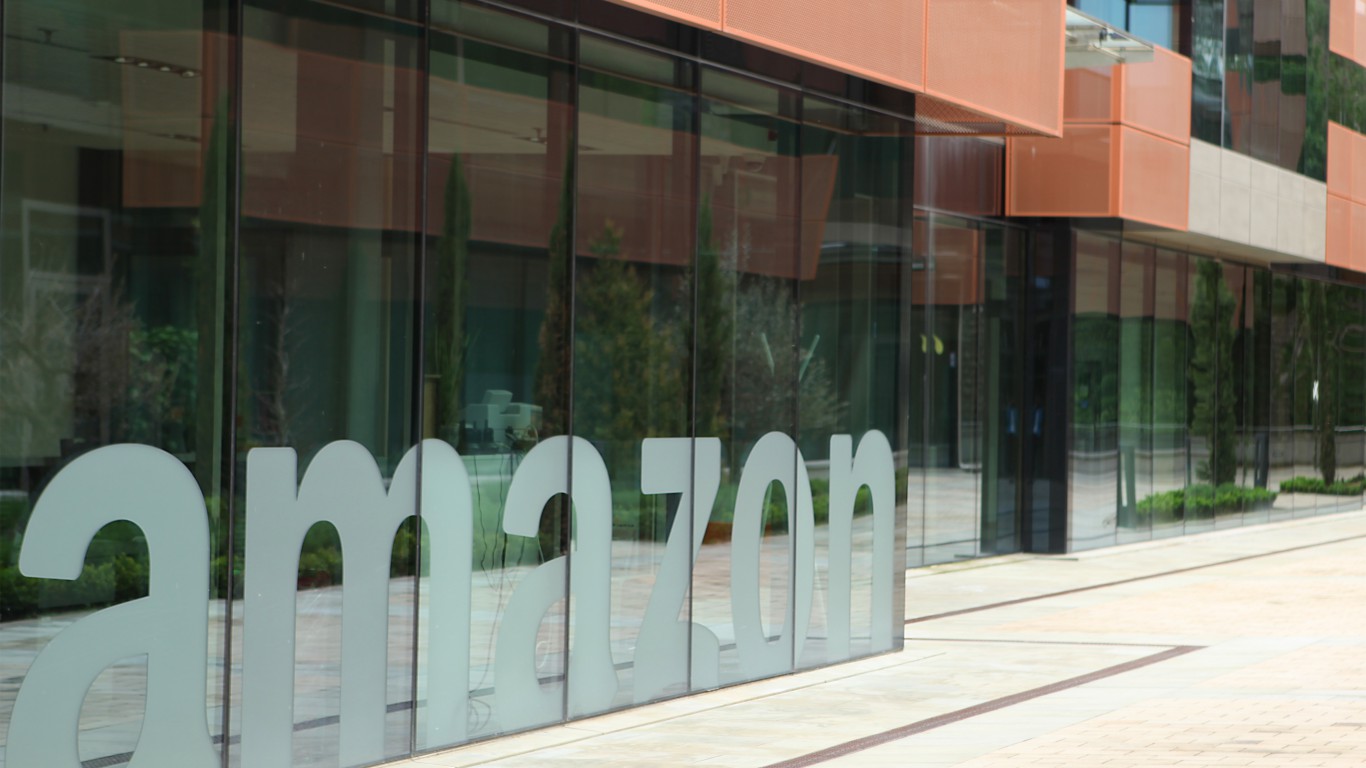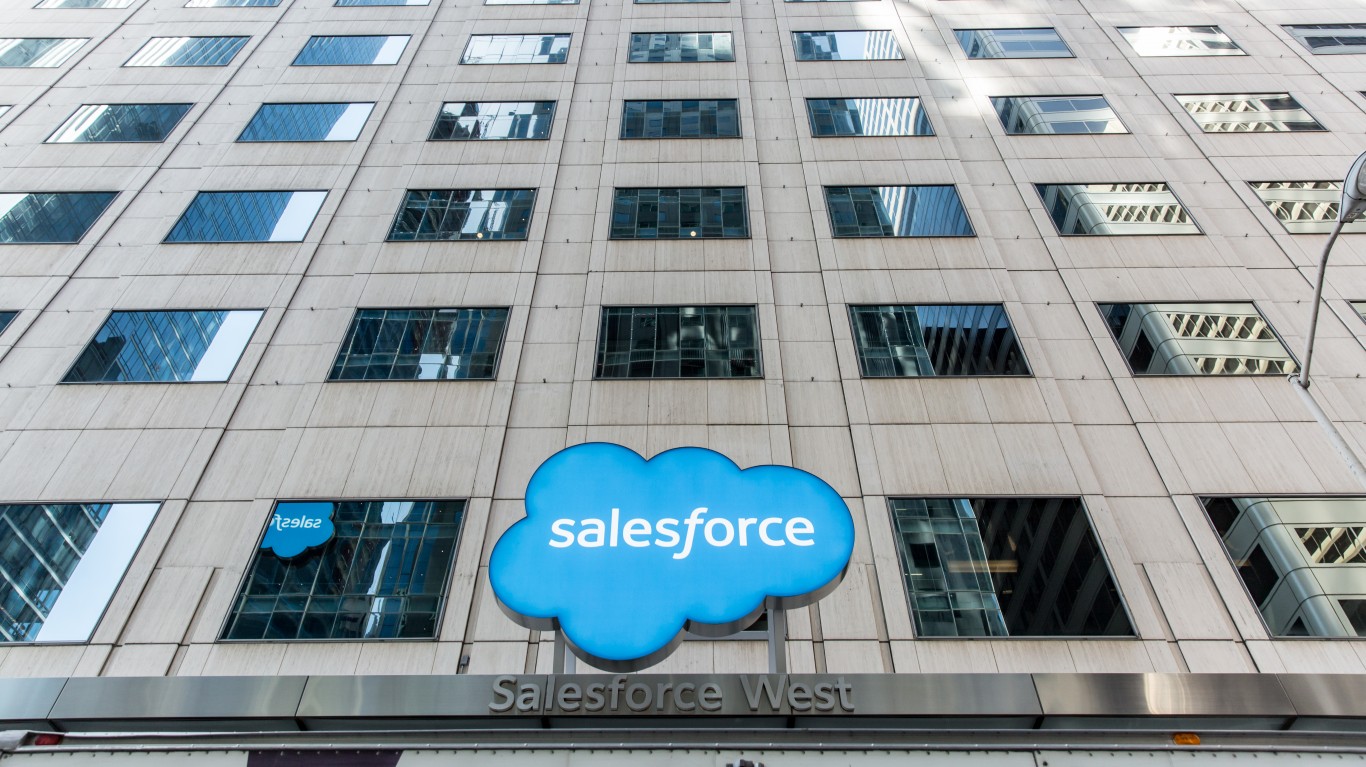
Amazon.com Inc. (NASDAQ: AMZN) has been a market darling — or the Death Star, depending on the industry — for a while now. Although Amazon stock has not kept pace with markets over the past year, a couple of analysts are calling for shares to run much higher.
Merrill Lynch reiterated a Buy rating and raised its price target to $2,330 from $2,160, which implies upside of 23% from the most recent closing price of $1,891.30.
According to the brokerage firm, Amazon has strong growth prospects in 2020 with improving delivery capabilities and still low cloud penetration. Merrill Lynch noted that Amazon remains earliest in its penetration curves among the FANG stocks, with a positive revenue mix shift for margins.
Merrill Lynch gave its 2020 full-year estimates as $329 billion in revenue and $45 billion EBITDA, compared to the consensus of $330 billion in revenue and $49 billion in EBITDA. While Amazon should generate $4.7 billion of incremental profit from AWS and advertising growth to work with in 2020, the firm thinks investment in free one-day shipping (plus investment in retail/grocery) will be deeper than street estimates. While first-quarter guidance could be a risk, Merrill Lynch thinks investors will see the margin bottom and that the stock starts to gain momentum in the spring.
Investment positives for Amazon in 2020 were given as follows:
1) Amazon’s eCommerce and Cloud position is strong, with both markets still very early on penetration curves; 2) Our survey results show Amazon has a big lead at the top-offunnel for eCommerce, and churn intentions remain low; 3) Free One-Day shipping accelerates unit & GMV growth, with grocery also ramping; 4) Both AWS and retail margin comps ease significantly in 2Q/3Q 2020; and 5) New categories & shipping opportunities opening up, driven by local fulfilment build.
Janney Capital believes that there is still a very large number of stocks (both large and small-cap) that appear to be emerging out of attractive multimonth bases (in some cases, multiyear bases). As the secular bull cycle progresses in the years ahead, these emerging bases will contribute more to the overall breadth and total return in the advance of equities in its view.
The firm further detailed:
One such emerging base now happens to be Amazon, which commands a high degree of influence over benchmarks like the market-cap weighted S&P 500. This stock has actually been a notable underperformer in recent months (actually for a good chunk of 2019), but is starting to show signs of gearing up once again. Amazon plays well into our demographic thesis- which shows the consumer base growing against strong labor force data (Boomer, GenXer, Millennial- 68% of the entire population), wage growth (especially within the younger / Millennial cohort), and household formation set to reach new all-time highs in less than a decade.
Janney likes the stock to rally back to its previous highs just north of $2,000, which generates a potential nominal gain of roughly 8%. However, a breakout above the prior highs would be very bullish and could likely lead to measured moves toward the $3,100 range on an intermediate- to longer-term basis. Janney would maintain long exposure above $1,700 support from here.
Shares of Amazon traded down 1% to $1,869.00 on Tuesday, in a 52-week range of $1,566.76 to $2,035.80. The consensus price target is $2,167.61.
The Average American Has No Idea How Much Money You Can Make Today (Sponsor)
The last few years made people forget how much banks and CD’s can pay. Meanwhile, interest rates have spiked and many can afford to pay you much more, but most are keeping yields low and hoping you won’t notice.
But there is good news. To win qualified customers, some accounts are paying almost 10x the national average! That’s an incredible way to keep your money safe and earn more at the same time. Our top pick for high yield savings accounts includes other benefits as well. You can earn up to 3.80% with a Checking & Savings Account today Sign up and get up to $300 with direct deposit. No account fees. FDIC Insured.
Click here to see how much more you could be earning on your savings today. It takes just a few minutes to open an account to make your money work for you.
Our top pick for high yield savings accounts includes other benefits as well. You can earn up to 4.00% with a Checking & Savings Account from Sofi. Sign up and get up to $300 with direct deposit. No account fees. FDIC Insured.
Thank you for reading! Have some feedback for us?
Contact the 24/7 Wall St. editorial team.
 24/7 Wall St.
24/7 Wall St.

